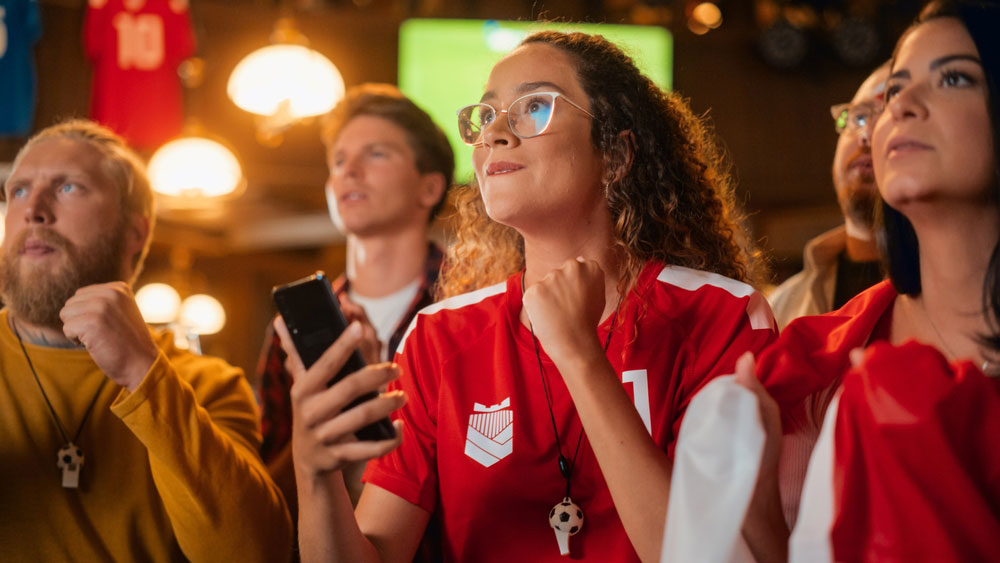Drinking and gambling on sports are widely accepted forms of entertainment – especially since a 2018 Supreme Court ruling that made sports betting legal in most states. However, when either habit becomes compulsive and difficult to control, it can lead to significant personal, financial and emotional consequences.
Alarmingly, research suggests a strong connection between substance use disorders and behavioral addictions like gambling. For those affected, comprehensive treatment is essential – especially when the issues overlap.
How Alcohol and Gambling Affect the Brain
Alcohol and gambling activate the brain’s reward system. When someone drinks or places a bet, the brain releases dopamine, a neurotransmitter associated with pleasure and reinforcement. Over time, repeated stimulation of this reward pathway can lead to dependence or addiction, making it difficult to stop even when you experience negative consequences.
The rush of anticipation and the intermittent rewards that come with sports betting can be just as addictive as alcohol. When combined, the effects can compound each other, leading to impaired judgment and riskier decision-making. The prevalence of apps that allow people to bet from their smartphones can magnify this problem.
The Correlation Between Substance Use and Gambling
Multiple studies suggest that people with substance use disorders are significantly more likely to develop behavioral addictions and vice versa. This overlap may be due in part to shared vulnerabilities, including:
- Impulsivity and thrill-seeking tendencies
- Difficulty regulating emotions
- Co-occurring mental health disorders such as anxiety or depression
- A family history of addiction
For example, someone who drinks heavily while watching or attending sporting events may start gambling impulsively, or a habitual gambler may begin drinking alcohol to cope with losses or enhance the experience. In either case, the interplay between the two addictions can create a destructive cycle.
Risks of Co-Occurring Alcohol and Gambling Addiction
When alcohol and sports gambling addictions co-occur, they can amplify each other’s impact. Risks may include:
- Financial hardship due to reckless gambling decisions made under the influence
- Increased likelihood of lying, secrecy and strained relationships
- Legal issues, including DUIs or debt-related crimes
- Escalation of mental health issues, including anxiety, depression and suicidal thoughts
Signs of a Problem
It may be time to seek professional help if you notice these red flags in your behavior.
- Drinking to cope with stress or emotions
- Repeated unsuccessful attempts to quit drinking or gambling
- Preoccupation with betting despite adverse outcomes
- Risky behavior or poor decision-making
- Neglecting responsibilities and relationships
Integrated Treatment at Pine Grove
At Pine Grove, we recognize that co-occurring addictions require simultaneous treatment. Treating alcohol use disorder without addressing gambling addiction, or vice versa, can leave you vulnerable to relapse. Our experienced clinicians offer specialized, evidence-based care:
- Comprehensive assessments to identify co-occurring disorders
- Individualized therapy plans tailored to your needs
- Family education and involvement
- Relapse prevention strategies and long-term support
Contact us today if alcohol and sports gambling interfere with your life. We will verify your insurance coverage and explain your treatment options.

